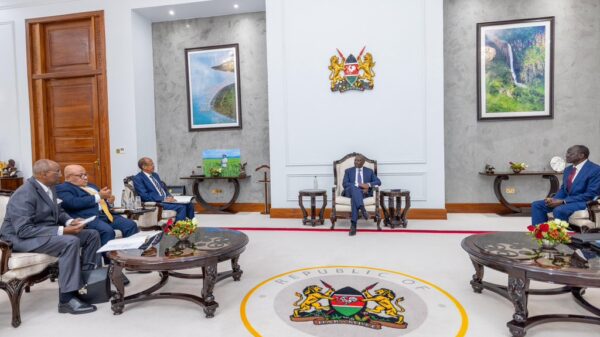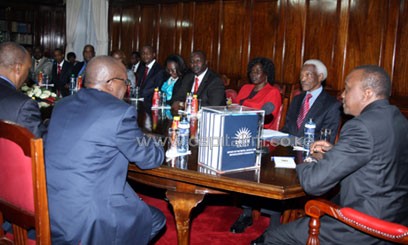According to the Truth, Justice and Reconciliation Act, “The Commission shal
l stand dissolved three months after submission of its report to the President,” which it did on May 21.As he exited office, the now defunct commission chairman Bethuel Kiplagat expressed his gratitude to the victims of historical injustices and human rights violations who enabled them compile the report.
The Commission Secretary Elijah Letangule said the only thing pending is the implementation of the report and the adoption of the Truth, Justice and Reconciliation (Amendment) Bill, 2013 on which it’s contingent.
“The object of this Bill is to amend the Truth, Justice and Reconciliation Act to make provisions on the consideration of the report of the commission by the National Assembly,” the chair of the Assembly’s Justice and Legal Affairs committee Samuel Chepkong’a said on receiving the report last month.
The 2008 Act mandated the commission to investigate historical injustices, human rights violations, political assassinations and grand corruption committed since independence and to make recommendations as to how they can be remedied.
The Act as it is, gives the government six months within which to begin implementation of the report, “The Minister shall, upon the publication of the report of the Commission, operationalise the implementation mechanism or arrangement in accordance with the recommendations of the Commission.”
On its release, the report reignited the divisions that have haunted the commission since its inception with a few of the commissioners claiming portions of the report, especially those relating to land, were taken out in order to appease the Executive.
It’s these divisions that had Kenyans questioning when and even if the report would ever be published as the differences spilt into the courtroom following the brief ouster of Kiplagat as chairman.
Led by the vice-chair Tecla Namachanja, a section of the commissioners questioned Kiplagat’s moral authority given they thought him complicit in the Wagalla massacre of 1984, the assassination of Robert Ouko and land grabbing as he served in President Daniel arap Moi’s government.



































